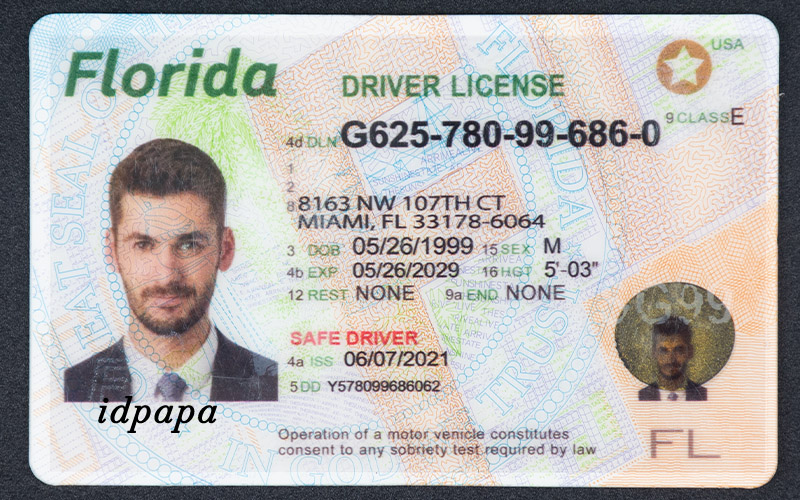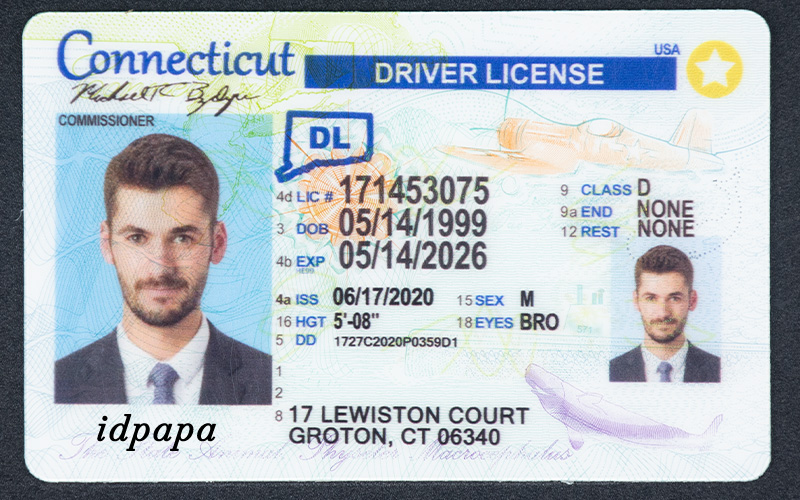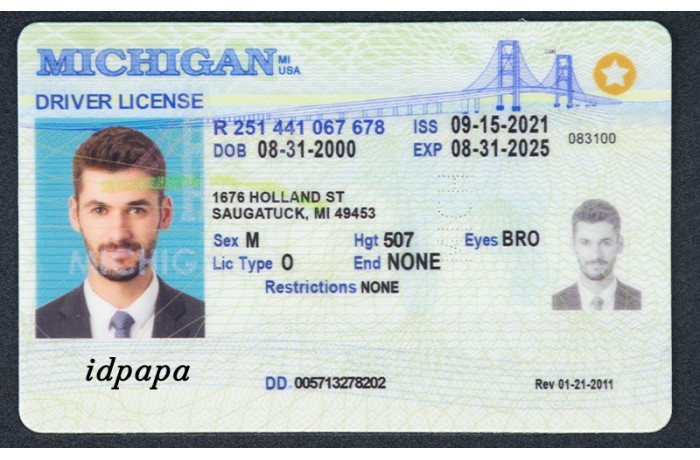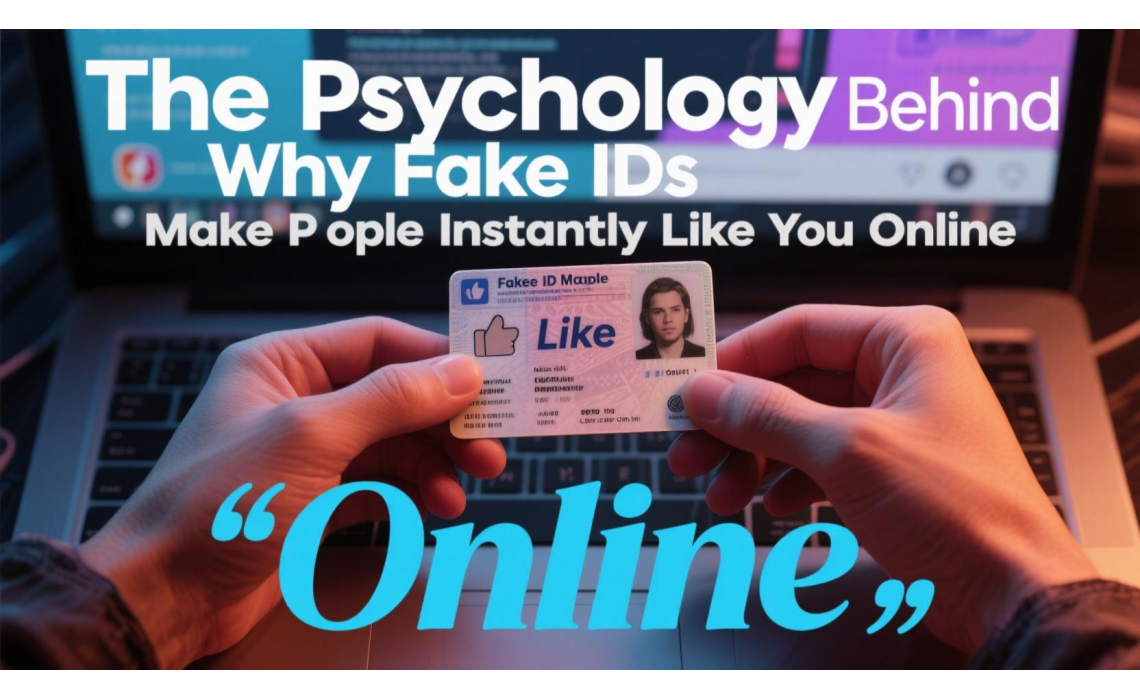The Psychology Behind Why Fake IDs Make People Instantly Like You Online
The Psychology Behind Why Fake IDs Make People Instantly Like You Online

In the fast-scrolling world of online interactions, making a good impression in seconds isn’t just helpful; it’s essential. Whether on TikTok, Zoom, Slack, or Instagram, people are constantly sizing each other up in micro-moments. That’s why one surprisingly simple tool is rising in popularity: fake IDs. Not the illegal kind, but hilarious novelty badges with made-up job titles like “Chief Vibe Curator” or “Head of Overthinking.”
These creative labels aren’t just funny—they’re psychologically powerful. Fake IDs can help you connect faster, seem more approachable, and build instant likability in online spaces. But what is it about a badge that makes people like you? Let’s break down the science behind the laughs.
 1. Humor Builds Trust and Likability
1. Humor Builds Trust and Likability
Psychologists have long known that humor is one of the fastest ways to build trust. When you wear a fake badge that says “Minister of Memes” or “VP of Awkward Pauses,” you're signaling that you don’t take yourself too seriously. This self-deprecating humor puts others at ease—and that’s a shortcut to likability.
Laughter is a social glue. People instinctively feel safer, more relaxed, and more curious around someone funny. Online, where body language and vocal tone are limited, a creative title can do the talking for you. It lowers defenses and invites people to engage—whether that’s through a like, comment, or private DM that starts with, “Okay, but your ID made me laugh out loud.”
2. Instant Identity = Instant Connection
In psychology, there’s a phenomenon called “the parasocial effect”—when we feel connected to someone even if we don’t know them personally. Fake IDs play into this by offering a compact, vivid sense of identity. When someone’s Zoom name is “Director of Procrastination Affairs,” you immediately get a sense of their vibe, personality, and energy.
It’s instant storytelling. A novelty ID blog takes what might be a faceless user or screen name and turns it into a character. This makes people feel seen, understood, and included. And when that identity mirrors a viewer’s habits (“I’m the CEO of Chaos, too!”), It sparks familiarity—one of the strongest psychological triggers of trust and engagement.
3. Specificity = Relatability
Viral psychology tells us that the more specific something is, the more people relate to it. It sounds backward, but it works: a badge that says “Director of Midnight Snacks” connects more deeply than one that just says “Food Lover.” Why? Because specific humor feels real. It makes the character behind the title feel authentic.
Fake IDs thrive on absurdly specific labels—“Emotional Support Human,” “CFO of Coffee Breaks,” or “Deadline Dancer.” These titles describe things people actually feel but rarely say out loud. That truth-in-humor creates a shared experience. It’s a wink across the internet that says, “We’re the same.” And that’s an emotional hook people don’t scroll past.

4. They Invite Interaction
Humans are wired to respond to cues, especially ones that are playful or unexpected. A creative fake job title is an open invitation to comment, ask questions, or tag friends. Social media thrives on participation, and novelty IDs are natural engagement magnets.
On platforms like TikTok or Instagram Reels, creators who flash badges like “Chief Chaos Officer” often get comments like “Where do I get one of those?” or “That’s me.” This interactive element transforms a passive viewer into an active participant. And once someone engages, they’re far more likely to stick around, follow, or share your content.
5. They Create Emotional Safety
Let’s be honest—social media can feel judgmental, competitive, and even alienating. But when you wear a badge that pokes fun at yourself, it sends a powerful subconscious message: “This space is safe. You can be yourself here.” That’s especially important in digital environments where people are constantly comparing or censoring themselves.
Fake IDs soften that tension. They humanize the digital experience. They say, “Let’s laugh together instead of compete.” And that’s exactly the type of energy that builds communities, not just followings.

How to Make One (and Make It Work)
You don’t need to be a designer or influencer to join the fun. Platforms like IDpapa make it super simple. With editable templates, you can create your novelty badge in seconds—upload a picture, type your name and made-up title, and download it for Zoom, social media, or printing at events.
Tips for Maximum Likeability:
●Keep it truthful but funny: “CFO of Crippling Anxiety” might get a laugh, but something like “Deadline Avoidance Manager” hits the sweet spot of safe humor and relatability.
●Match it to your vibe. A soft-spoken person might rock “Quietly Judging You Coordinator,” while a loud friend could own “Official Chaos Curator.”
●Switch it up often: Changing your title every week keeps things fresh and keeps followers engaged.
Final Thoughts: A Badge Can Build a Bond
In a world of fleeting content and fast impressions, a well-crafted novelty ID isn’t just a joke—it’s a shortcut to emotional connection. Its branding meets vulnerability, and humor meets identity. Whether you're in a digital classroom, corporate Zoom call, or a content creator's stream, a fake ID badge can be the most genuine thing in the room.
So go ahead—make yourself “Senior Director of Soft Laughs” or “Lead Procrastination Engineer.” Because sometimes, the most powerful way to connect online... is to start by not taking yourself too seriously.


